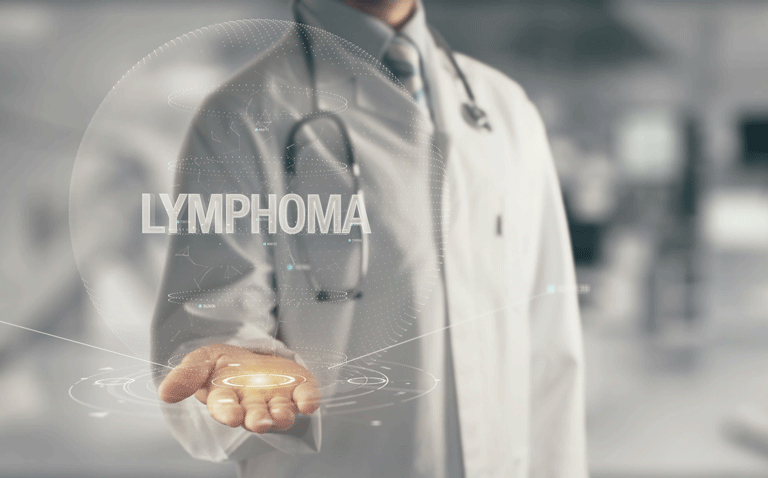Mosunetuzumab mono-therapy has been shown to induce both a high and durable response in patients with refractory follicular lymphoma
The use of mosunetuzumab mono-therapy in patients who have refractory follicular lymphoma (FL) gave rise to a high response rate and durable remission. This was the finding from a Phase II trial by a team from the BC Cancer Centre for Lymphoid Cancer and University of British Columbia, Vancouver, Canada, presented at ASH 2021.
FL is a type of non-Hodgkin lymphoma and associated with frequent relapses and decreasing progression-free intervals with successive lines of conventional therapy. Mosunetuzumab (Mosun) is a CD20xCD3 bi-specific antibody that re-directs T cells to eliminate malignant B cells and in the dose-escalation phase of an ongoing Phase I/II study (NCT02500407), Mosun was highly active and well tolerated in relapse-refractory follicular lymphoma (R/R FL) patients who had received 2 or more prior therapies. The Canadian team have now presented pivotal data from the same study from a large expansion cohort of R/R FL patients who received Mosun mono-therapy at the recommended Phase II dose (1/2/60/30mg).
All patients had FL (Grade 1–3a) and had at least 2 prior lines of therapy and the primary endpoint was complete response (CR) rate based on PET/CT scanning and assessed by an independent review facility (IRF) using standard response criteria.
Findings
A total of 90 patients with a median age of 60 years (61.1% male) were enrolled in the study and at entry, 76.7% had stage III or IV disease and the median number of prior lines of therapy was 3 (range: 2–10). In addition to Mosun, alkylators were given to all patients. Overall, 68.9% of patients were refractory to their last therapy, 78.9% to any prior aCD20 Ab, and 53.3% to any prior aCD20 Ab and an alkylator (double refractory).
The median time on mosunetuzumab was 12.9 months and CR rates by IRF was 57.8% and the overall response rate (ORR) was 78.9% with the median time to first response being 1.4 months and the median progression free survival time was 17.9 months. Among patients with at least two prior treatment failures the CR was 48% and the ORR 69%.
Cytokine release syndrome was the most common adverse event, occurring in 44.4% of all patients although this was mostly confined to grade 1 severity. Other common adverse events were fatigue (36.7%), headache (31.1%), neutropenia and pyrexia (28.9% each), hypophosphataemia (22.2%), and pruritus (21.1%).
The authors concluded that Mosun induces deep and durable remissions and with a high response rates that was maintained for ≥12 months in the majority of patients and that it represents an active new therapy for relapse-refractory patients with follicular lymphoma.
Citation
Budde E et al. Mosunetuzumab Monotherapy Is an Effective and Well-Tolerated Treatment Option for Patients with Relapsed/Refractory (R/R) Follicular Lymphoma (FL) Who Have Received ≥2 Prior Lines of Therapy: Pivotal Results from a Phase I/II Study. ASH Conference 2021










